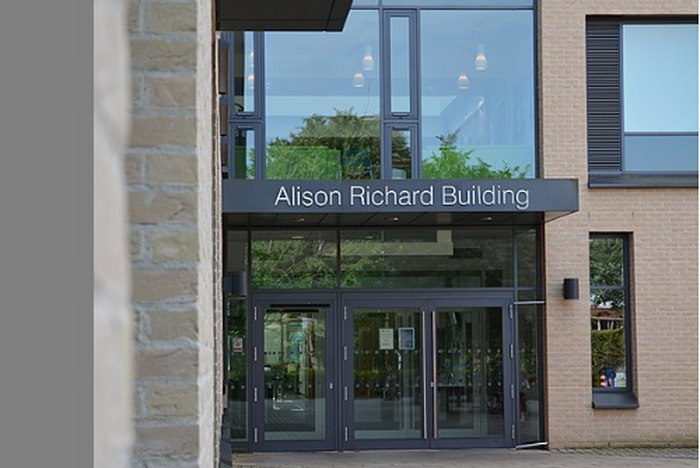Stowe headteachers claims of ‘social engineering’ at Oxbridge highlight the importance of access
In the wake of ‘social engineering’ claims, Alex Walsh argues that if Cambridge is to serve its purpose as a meritocratic institution, it must ensure that offers go to the most able regardless of their background

The head-teacher of Stowe, a private school in Buckinghamshire which has annual fees of over £38,000, has come under criticism in recent days for comparing criticism of private schools to anti-Semitism.
In addition to this, he reported that parents at the school felt their children were missing out on Oxbridge places because of ’social engineering’ that favours applicants from state schools. This is despite the fact that 42% of Oxbridge places go to private school students, who represent only 7% of the UK’s school population or 15% post-16.
Access is not a matter of a political correctness
Wallersteiner’s comments regarding anti-Semitism have come under fire from public figures such as Margaret Hodge, Tom Watson and Jo Maugham. The Campaign Against Anti-Semitism has stated in response to Wallersteiner’s statements that ‘Tasteless Holocaust analogies do not belong in the debate about education in this country’. Clearly, such comparisons are ridiculous and counter-productive to debates currently unfolding around anti-Semitism and higher education.
However, reports of parental concerns about ‘social engineering’ in Oxbridge admissions are a stark reminder of the importance of access. The idea that pupils from comprehensive schools are only able to attend Oxbridge universities because of unfair ‘social engineering’ presents state school students at Cambridge as an aberration. Apparently, there are still people who believe that Oxbridge should return to being playgrounds for the rich.
These elitist views are not restricted to the Stowe school. Toby Young, the disgraced former board member of the Office for Students and the son of a baron bemoaned inclusivity and the admission of working-class students to Oxford - calling it an influx of ‘small, vaguely deformed undergraduates’. Young was eventually forced to resign from his post on the higher education watchdog after a spate of his misogynistic tweets were made public. However, the very fact that he was appointed in the first-place hints at a worrying complacency in our higher education system with regards to widening participation, particularly at Oxbridge. Along with Young’s place in our education system, Wallersteiner’s comments are another reminder that we still have a long way to go in changing elitist views of Oxbridge.
Wallersteiner’s claims are a reflection of the sense of entitlement that can be fostered at the highest levels of the private school system. While the parents he cites seem bewildered that their children are not automatically provided with an Oxbridge place, for many outside of the private school system, Cambridge and Oxford can seem like alien environments. Such a huge gap in expectations between the state and private education systems has a real impact on admissions, as private school students are still more likely to apply to Oxbridge than their state-schooled peers.
Reports of parental concerns about ‘social engineering’ in Oxbridge admissions are a stark reminder of the importance of access
Within the university, every effort must be made to combat these views, which portray the privately educated as insiders before they even arrive at Cambridge. Whilst these opinions are still expressed in the public sphere, it is hardly surprising that even the most able state-educated Oxbridge students experience some level of imposter syndrome. The private school system does not just socially segregate educational resources, it also creates a deficit in confidence and aspirations between the privately educated and the vast majority who attend comprehensive schools.
Access is not a matter of a political correctness and it is certainly not a conspiracy against the privately educated. If Cambridge is to serve its purpose as a meritocratic public educational institution, it needs to promote participation from all of the country’s most able students, whatever their background. Providing students from state schools or disadvantaged backgrounds with equal access to a high-quality university education is not ‘social engineering’, it should be a basic requirement.
Of course, there are ongoing efforts to promote access in Cambridge. Most colleges have an access scheme and the university’s CAMbassador programme helps to provide insights into the application process and life at Cambridge. Most students at Cambridge appreciate the importance of access, including those who went to private schools. Meanwhile, state schooled students have proved that they are not here to fill quotas by outperforming their privately educated counterparts at university. However, the Wallersteiners of this world provide proof of the urgency of this work and how much is left to be done. Voices like his cannot be allowed to define public perceptions of Oxbridge.
As these elitist views of Oxbridge continue to circulate, it is more vital than ever that these universities do all that they can to promote access for all students.
 News / Cambridge academics stand out in King’s 2026 Honours List2 January 2026
News / Cambridge academics stand out in King’s 2026 Honours List2 January 2026 Interviews / You don’t need to peak at Cambridge, says Robin Harding31 December 2025
Interviews / You don’t need to peak at Cambridge, says Robin Harding31 December 2025 Comment / What happened to men at Cambridge?31 December 2025
Comment / What happened to men at Cambridge?31 December 2025 News / Varsity’s biggest stories of 202531 December 2025
News / Varsity’s biggest stories of 202531 December 2025 Features / “It’s a momentary expression of rage”: reforming democracy from Cambridge4 January 2026
Features / “It’s a momentary expression of rage”: reforming democracy from Cambridge4 January 2026










